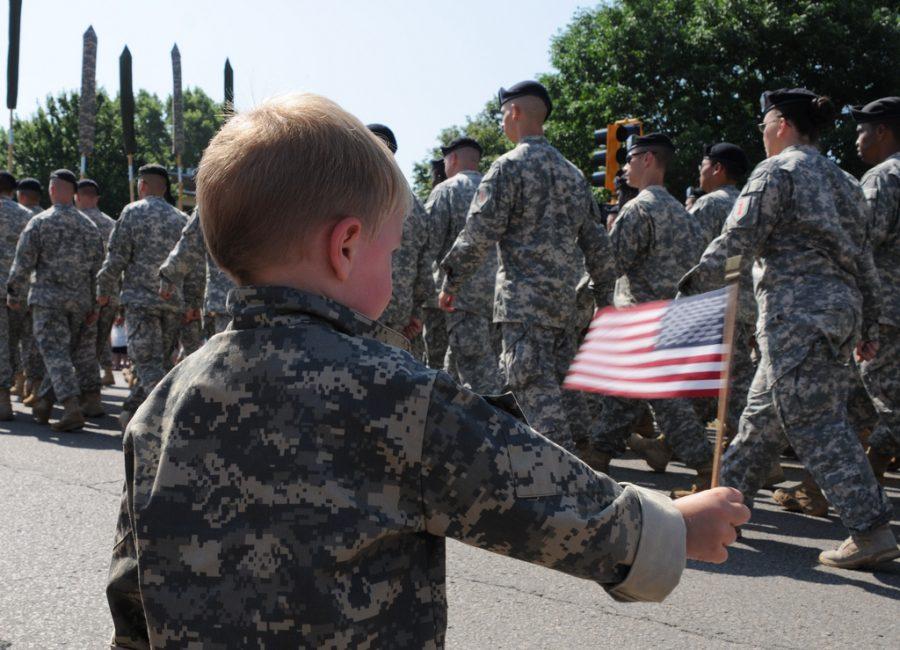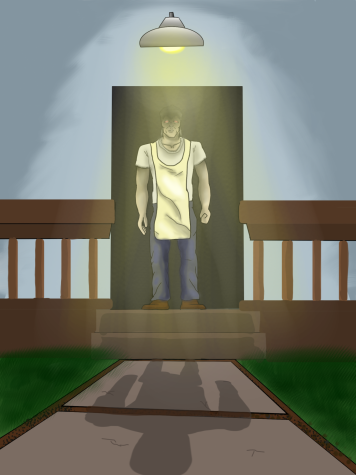A Different Normal
A soldiers child at a parade
There are close to 1.4 million U.S. soldiers currently serving our country. For many, those soldiers are moms, dads, aunts, uncles, brothers, or sisters. While fighting for our country on the other side of the world or the other side of town, there are many families behind these brave faces.
There is no doubt that our soldiers are some of the bravest people to walk the earth. The people that are also brave: their families. Freshman Moriah Mclendan experiences this firsthand.
Moriah’s dad has been in service for 25 years. Moriah also has divorced parents, so she does not see him that often.
Days like her birthday, Father’s Day, and Christmas are just a few holidays that Moriah has never spent with her dad. She says, “Those days are pretty important to me, and it’s hard not having him there to celebrate.”
Moriah’s family has moved three times due to her dad being in the military. She has lived in Texas, Florida, and Georgia, causing her to lose touch with friends and have to make new ones in each city.
Military families are 10 times more likely to relocate than an average family. Some families have to move every 2-3 years. This causes a strain on the child’s ability to make friends easily, knowing that they might have to move again soon.
As well as holidays, regular days are different too. Moriah is constantly wondering when she will next see her dad. While most kids walk in the door after school to see their parents, she doesn’t. This definitely has affected her daily life. “When I was little, I went two and a half years without seeing him because he was in Japan and Korea.”

Moriah with her dad, stepmom and sister
When Moriah was younger, not seeing her dad every day took a toll on her overall mood. This was where school was the hardest. If she hadn’t talked to her dad the night before, the next day at school would be harder to get through than the previous. As a child, having a father figure is important, and not having one 100% of the time could affect how the kids are going to feel. On top of not seeing their parent everyday, the child also has to worry about if they are safe or when they will come home.
According to The Washington Post, it is said that children can show signs of anxiety, depression, stress and aggression due to long separations, many deployments, and sometimes awkward reunions between family members.
Moriah expressed how she felt when she hadn’t talked to or seen her dad in a while: “I would think some pretty terrible things if I might not have heard from him.”
Having a parent in the military and not seeing them often can really affect and shape how children will grow up and who they will become.
For Moriah, not seeing her dad has become normal. For some people, that might greatly impact them, but Moriah says that since she has grown up this way, the effects of not seeing her dad every day have become less and less. Things that bothered her a lot when she was younger don’t as much now; she has learned to deal with these difficulties.
With many children around the country dealing with this same situation, it is no surprise that Moriah is just one of many Apple Valley High School students affected by this. Her dad may be the one fighting for our country, but Moriah is fighting the daily struggle of living with a parent in the military.







